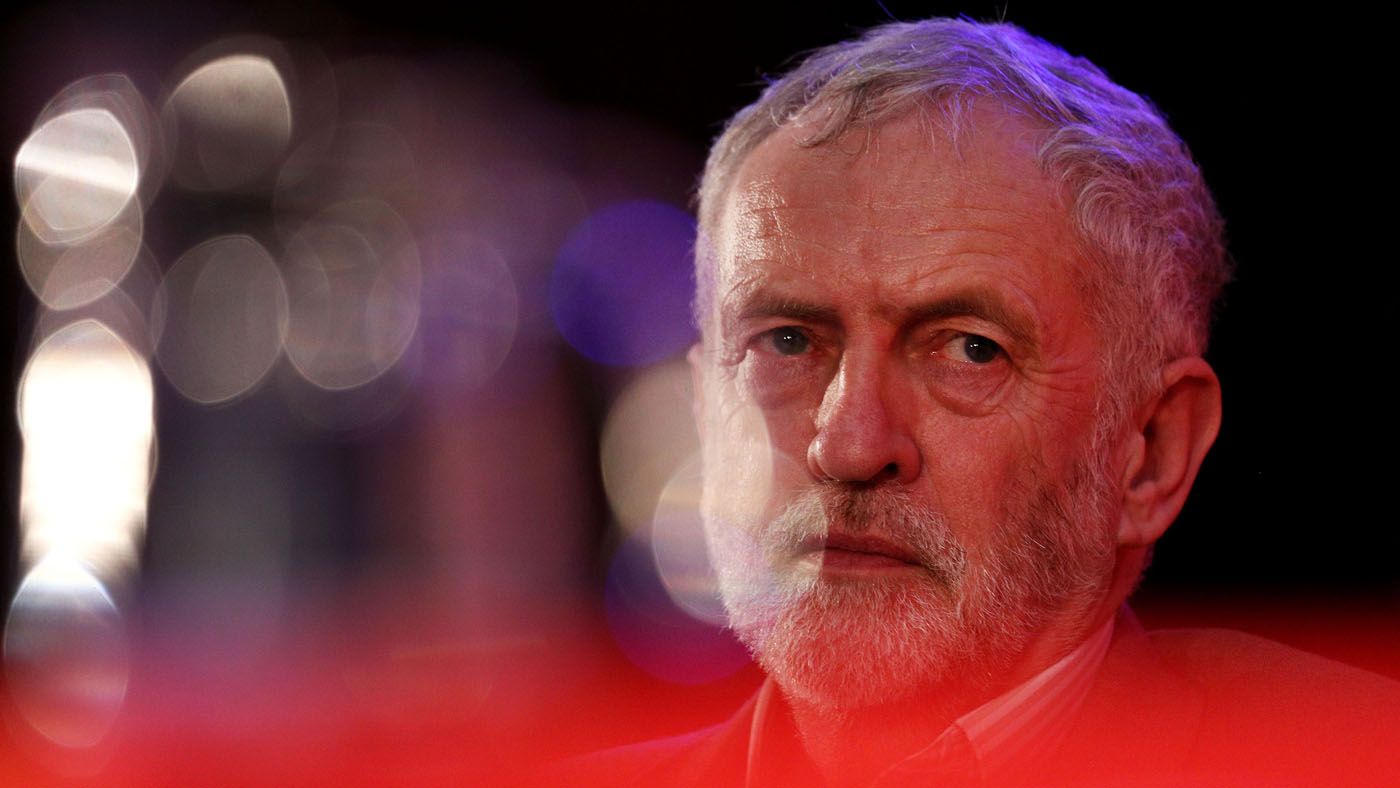Tensions flare within Labour party over anti-Semitism controversy
Leadership criticised by backbenchers in Commons debate

A free daily email with the biggest news stories of the day – and the best features from TheWeek.com
You are now subscribed
Your newsletter sign-up was successful
Allegations of anti-Semitism in the Labour Party continued to mount yesterday as the party's leadership was criticised by some of its own backbench MPs during a Commons debate.
Dame Margaret Hodge, Labour MP for Barking and the daughter of Jewish refugees, told her peers that she felt like “an outsider in the party I have been a member of for 50 years”.
“I have never felt as nervous and frightened as I feel today at being a Jew,” she added. “It feels that my party has given permission for anti-Semitism to go unchallenged.”
The Week
Escape your echo chamber. Get the facts behind the news, plus analysis from multiple perspectives.

Sign up for The Week's Free Newsletters
From our morning news briefing to a weekly Good News Newsletter, get the best of The Week delivered directly to your inbox.
From our morning news briefing to a weekly Good News Newsletter, get the best of The Week delivered directly to your inbox.
Luciana Berger, Labour MP for Liverpool Wavertree, made a speech in which she said that she had “never seen anti-Semitism as a child”, but that “in 2018, within the Labour Party, anti-Semitism is now more commonplace, it is more conspicuous and it is more corrosive”.
Berger added: “That’s why I have no words for the people who purport to be both members and supporters of our party, who use that hashtag JC4PM, who attacked me in recent weeks for my comments; they attacked me for speaking at the rally against anti-Semitism . . . who say I should be de-selected.”
Both Berger and Hodge received standing ovations for their speeches.
Meanwhile, in what The Times describes as “a highly pointed gesture”, Labour’s deputy leader Tom Watson chose to sit on the back benches, between Berger and Stoke-on-Trent North MP Ruth Smeeth, rather than in his usual position on the front bench beside Jeremy Corbyn.
A free daily email with the biggest news stories of the day – and the best features from TheWeek.com
Party leader Corbyn walked out of the debate after around half an hour, although he later returned.
On the opposite bench, Home Secretary Amber Rudd said: “Labour is a noble and honourable party and it is absolutely wrong that this corner of anti-Semitism has been allowed to flourish. [Corbyn] has an obligation to take action. We expect nothing less.”
The debate, which was called by the Government, came as Jewish leaders said they would be boycotting a scheduled meeting with Corbyn next week, after it emerged that “a hard-left group which denies that Labour has a problem with anti-Semitism had also been invited”, reports The Times.
-
 The week’s best photos
The week’s best photosIn Pictures An explosive meal, a carnival of joy, and more
-
 The ‘ravenous’ demand for Cornish minerals
The ‘ravenous’ demand for Cornish mineralsUnder the Radar Growing need for critical minerals to power tech has intensified ‘appetite’ for lithium, which could be a ‘huge boon’ for local economy
-
 Why are election experts taking Trump’s midterm threats seriously?
Why are election experts taking Trump’s midterm threats seriously?IN THE SPOTLIGHT As the president muses about polling place deployments and a centralized electoral system aimed at one-party control, lawmakers are taking this administration at its word
-
 How corrupt is the UK?
How corrupt is the UK?The Explainer Decline in standards ‘risks becoming a defining feature of our political culture’ as Britain falls to lowest ever score on global index
-
 How long can Keir Starmer last as Labour leader?
How long can Keir Starmer last as Labour leader?Today's Big Question Pathway to a coup ‘still unclear’ even as potential challengers begin manoeuvring into position
-
 The high street: Britain’s next political battleground?
The high street: Britain’s next political battleground?In the Spotlight Mass closure of shops and influx of organised crime are fuelling voter anger, and offer an opening for Reform UK
-
 Biggest political break-ups and make-ups of 2025
Biggest political break-ups and make-ups of 2025The Explainer From Trump and Musk to the UK and the EU, Christmas wouldn’t be Christmas without a round-up of the year’s relationship drama
-
 Is a Reform-Tory pact becoming more likely?
Is a Reform-Tory pact becoming more likely?Today’s Big Question Nigel Farage’s party is ahead in the polls but still falls well short of a Commons majority, while Conservatives are still losing MPs to Reform
-
 The launch of Your Party: how it could work
The launch of Your Party: how it could workThe Explainer Despite landmark decisions made over the party’s makeup at their first conference, core frustrations are ‘likely to only intensify in the near-future’
-
 What does the fall in net migration mean for the UK?
What does the fall in net migration mean for the UK?Today’s Big Question With Labour and the Tories trying to ‘claim credit’ for lower figures, the ‘underlying picture is far less clear-cut’
-
 Will the public buy Rachel Reeves’s tax rises?
Will the public buy Rachel Reeves’s tax rises?Today’s Big Question The Chancellor refused to rule out tax increases in her televised address, and is set to reverse pledges made in the election manifesto